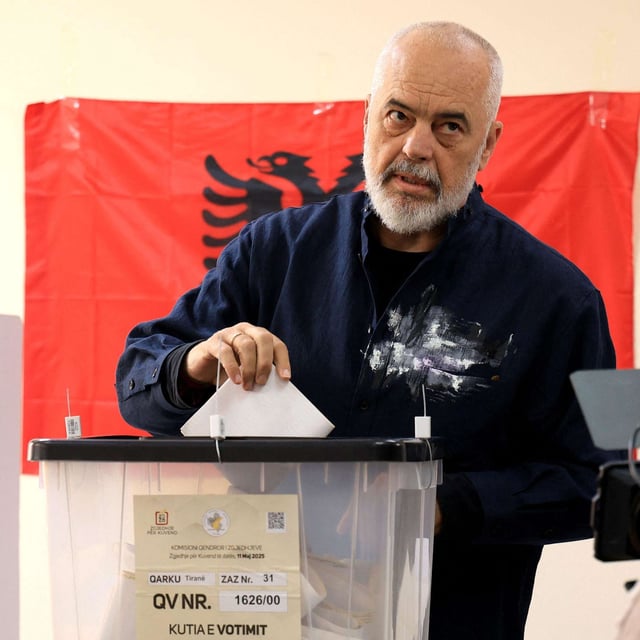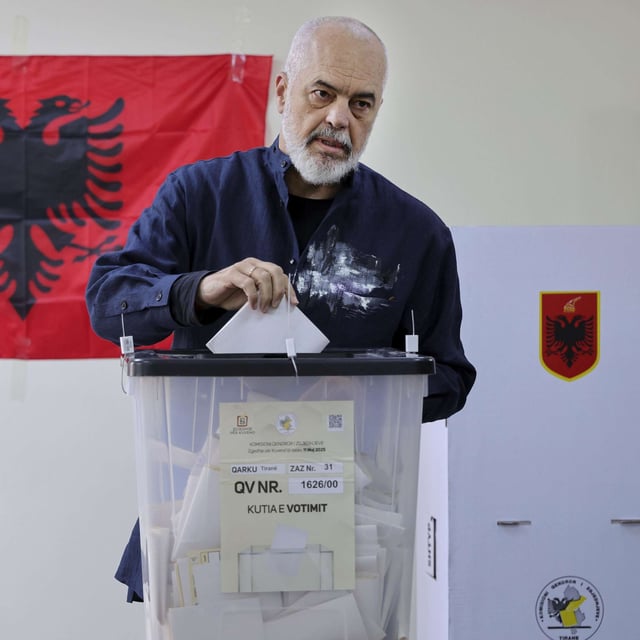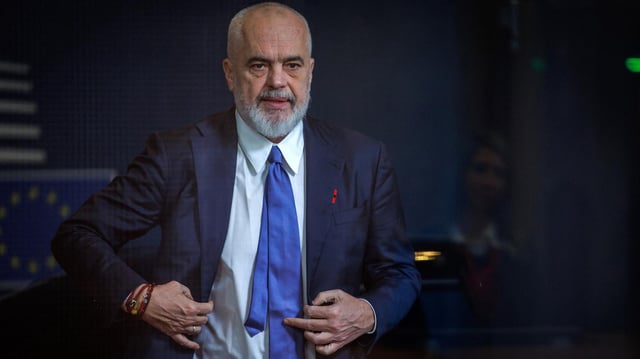Overview
- Prime Minister Edi Rama’s Socialist Party holds a strong lead with 52.6% of counted votes, while the opposition Democratic Party trails at 34.1%.
- Approximately 40% of ballots have been tallied, with voter turnout reported at a historically low 42.2%.
- This election saw the introduction of mail-in voting for 245,935 diaspora registrants, a first in Albanian electoral history.
- The OSCE highlighted extreme political polarization during the election, which is seen as a key test for Albania’s EU membership bid.
- Rama, seeking a fourth term, has faced criticism for his government’s media control and influence over key sectors, while emphasizing EU accession goals by 2030.


